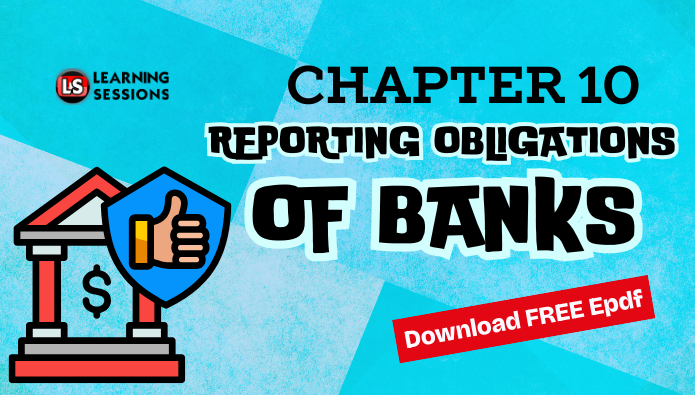Are you aware that banks have strict reporting obligations to prevent money laundering? Failing to comply can result in severe penalties, impacting both financial institutions and individuals.
Who Should Watch?
- ✅ Bankers & Finance Professionals
- ✅ Compliance Officers & Risk Managers
- ✅ IIBF Certification Aspirants
- ✅ Anyone interested in AML (Anti-Money Laundering) regulations
👉 Watch the full video below for an in-depth breakdown:
Key Reporting Obligations Under PMLA
1. Cash Transaction Report (CTR)
- Transactions above ₹10 lakh (Indian or foreign currency) must be reported.
- Multiple smaller transactions (aggregating to ₹10 lakh in a month) also qualify.
- Reporting Frequency: Monthly (by the 15th of the following month).
- Penalty for Delay: ₹10,000 to ₹1 lakh per violation.
2. Suspicious Transaction Report (STR)
- Transactions suspected to be linked with money laundering or criminal activities.
- Can be attempted or completed transactions.
- Must be reported within 7 days of suspicion.
3. Counterfeit Currency Report (CCR)
- If fake currency notes or forged security documents are detected.
- Report all instances by the 15th of the following month.
4. Non-Profit Organization Transaction Report (NTR)
- Donations above ₹10 lakh to charitable organizations.
- Includes both Indian & foreign currency transactions.
- Reporting Frequency: Monthly.
5. Cross-Border Wire Transfer Report (CBTR)
- Transactions above ₹5 lakh involving foreign remittances.
- Applies to both inward & outward transfers.
- Reporting Frequency: Monthly.
[FREE EPDF] KYC AML | AML Legislation at National Level Explained | Chapter 5
Consequences of Non-Compliance
🚨 Delay in Reporting = Multiple Violations!
If a report due on 15th Feb is submitted on 21st Feb, that’s 6 violations (one per day) = ₹6 lakh penalty!
🚨 Failure to report = Severe legal consequences!
The FIU-IND Director can impose monetary penalties and take further regulatory action against the bank.
Download PDF – Full KYC & AML Compliance Guide
📥 Click here to download a comprehensive PDF covering all key reporting obligations & AML guidelines for banks.
Conclusion
Understanding banking compliance is not just important—it’s mandatory! Banks must report high-value and suspicious transactions on time to avoid heavy penalties. Compliance teams must stay updated with PMLA guidelines and implement automated monitoring systems to detect financial fraud.
If you found this video helpful, like, share, and subscribe for more such insightful content! 💡
Got questions? Drop a comment below, and we’ll be happy to answer them! 🚀
Also Like:





